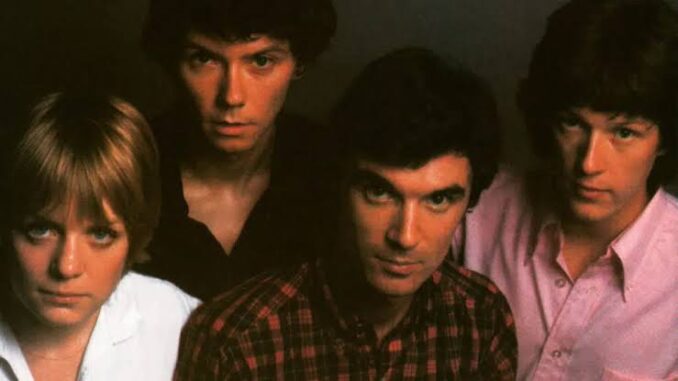
New York, NY – The legendary Talking Heads, architects of a unique blend of art rock and innovative music, find themselves at a crossroads. Whispers are swirling that the band’s famed, if occasionally fractured, legacy might be more fragile than commonly perceived. Recent events suggest a troubling uncertainty surrounding the future of the influential group, leaving fans and music critics alike grappling with potential implications.
For decades, Talking Heads defined an era. Their distinct sound, spearheaded by the innovative and often-surprising David Byrne, combined angular rhythms with thoughtful lyrics, paving the way for a generation of artists. Albums like “Remain in Light,” “Stop Making Sense,” and “True Stories” continue to resonate with listeners, sparking debate and inspiring countless musicians. Their influence on musical styles, from electronic music to indie rock, is undeniable, solidifying their place as a cornerstone of the music world.
However, the cracks are beginning to show. Recent statements from band members have painted a picture of lingering tensions and strained relationships. Sources close to the group suggest that differing creative visions and personal disputes are creating obstacles to any kind of collaborative effort. Rumours of disagreements over songwriting credits, differing views on the direction of future musical projects, and potential dissatisfaction with touring arrangements have begun to proliferate through music industry circles.
David Byrne, the group’s charismatic frontman, has been notably quiet on the matter, though his recent appearances signal a cautious approach. His solo work, while successful, hasn’t quite matched the band’s collective impact in some fans’ eyes. Meanwhile, other band members, including the ever-enigmatic Jerry Harrison and Tina Weymouth, have yet to publicly address the rumors, further fueling speculation.
The band’s absence from the music scene, a noticeable phenomenon in recent years, is part of the growing concern. The lack of new recordings, tours featuring only parts of the original lineup, and the perceived reluctance of any active interest in a reunion are casting a long shadow over the band’s future. This is a dramatic shift from the era where Talking Heads were consistently bringing new music and ideas to fans.
The implications are significant. The Talking Heads’ ability to meld intellectual pursuits with profound musical innovation made their music critically acclaimed and deeply resonant. The potential dissolution of this vital force in musical history could leave a void in the musical landscape.
While dedicated fans hold on to hope, the cautious whispers and the lack of firm commitment from the band members contribute to the widespread worry. The music industry is bracing for the consequence, both economically and culturally. The legacy of a band which consistently pushed boundaries and inspired generations faces a grave threat, leaving many to question whether a singular sound forever defining an era is truly beyond repair.
Without open communication and an indication of future directions, the situation remains frustrating for fans, prompting a desperate need for clarification. The future of Talking Heads remains uncertain, and the lingering question hangs heavy in the air: will the legendary band finally disappear entirely, leaving behind a once vibrant legacy in disarray?
Be the first to comment